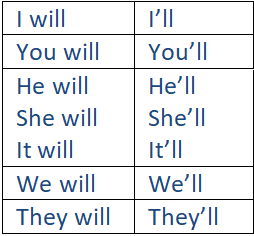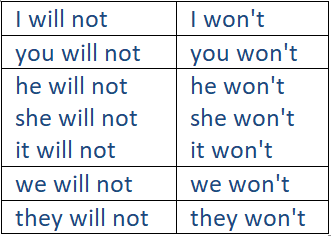

Grammar


Tenses


Present

Present Simple

Present Continuous

Present Perfect

Present Perfect Continuous


Past

Past Simple

Past Continuous

Past Perfect

Past Perfect Continuous


Future

Future Simple

Future Continuous

Future Perfect

Future Perfect Continuous


Parts Of Speech


Nouns

Countable and uncountable nouns

Verbal nouns

Singular and Plural nouns

Proper nouns

Nouns gender

Nouns definition

Concrete nouns

Abstract nouns

Common nouns

Collective nouns

Definition Of Nouns

Animate and Inanimate nouns

Nouns


Verbs

Stative and dynamic verbs

Finite and nonfinite verbs

To be verbs

Transitive and intransitive verbs

Auxiliary verbs

Modal verbs

Regular and irregular verbs

Action verbs

Verbs


Adverbs

Relative adverbs

Interrogative adverbs

Adverbs of time

Adverbs of place

Adverbs of reason

Adverbs of quantity

Adverbs of manner

Adverbs of frequency

Adverbs of affirmation

Adverbs


Adjectives

Quantitative adjective

Proper adjective

Possessive adjective

Numeral adjective

Interrogative adjective

Distributive adjective

Descriptive adjective

Demonstrative adjective


Pronouns

Subject pronoun

Relative pronoun

Reflexive pronoun

Reciprocal pronoun

Possessive pronoun

Personal pronoun

Interrogative pronoun

Indefinite pronoun

Emphatic pronoun

Distributive pronoun

Demonstrative pronoun

Pronouns


Pre Position


Preposition by function

Time preposition

Reason preposition

Possession preposition

Place preposition

Phrases preposition

Origin preposition

Measure preposition

Direction preposition

Contrast preposition

Agent preposition


Preposition by construction

Simple preposition

Phrase preposition

Double preposition

Compound preposition

prepositions


Conjunctions

Subordinating conjunction

Correlative conjunction

Coordinating conjunction

Conjunctive adverbs

conjunctions


Interjections

Express calling interjection

Phrases

Sentences


Grammar Rules

Passive and Active

Preference

Requests and offers

wishes

Be used to

Some and any

Could have done

Describing people

Giving advices

Possession

Comparative and superlative

Giving Reason

Making Suggestions

Apologizing

Forming questions

Since and for

Directions

Obligation

Adverbials

invitation

Articles

Imaginary condition

Zero conditional

First conditional

Second conditional

Third conditional

Reported speech

Demonstratives

Determiners

Direct and Indirect speech


Linguistics

Phonetics

Phonology

Linguistics fields

Syntax

Morphology

Semantics

pragmatics

History

Writing

Grammar

Phonetics and Phonology

Semiotics


Reading Comprehension

Elementary

Intermediate

Advanced


Teaching Methods

Teaching Strategies

Assessment
Future Simple
المؤلف:
ENGLISHCLUB.COM
المصدر:
...
الجزء والصفحة:
...
31-3-2021
1381
Future Simple
Future Simple - We will sing
The Future Simple tense is often called the "will tense" because we make the Future Simple with the modal auxiliary will.
How do we make the Future Simple tense?
The structure of the Future Simple tense is:

For negative sentences in the Future Simple tense, we insert not between the auxiliary verb and main verb. For question sentences, we exchange the subject and auxiliary verb. Look at these example sentences with the Future Simple tense:

Contraction with Future Simple
We sometimes use shall instead of will, especially for I and we.
When we use the Future Simple tense in speaking, we often contract the subject and auxiliary verb:

In negative sentences, we contract with won't, like this:

How do we use the Future Simple tense?
No Plan
We use the Future Simple tense when there is no plan or decision to do something before we speak. We make the decision spontaneously at the time of speaking. Look at these examples:
Hold on. I'll get a pen.
We will see what we can do to help you.
Maybe we'll stay in and watch television tonight.
In these examples, we had no firm plan before speaking. The decision is made at the time of speaking.
We often use the Future Simple tense with the verb to think before it:
I think I'll go to the gym tomorrow.
I think I will have a holiday next year.
I don't think I'll buy that car.
Prediction
We often use the Future Simple tense to make a prediction about the future. Again, there is no firm plan. We are saying what we think will happen. Here are some examples:
It will rain tomorrow.
People won't go to Jupiter before the 22nd century.
Who do you think will get the job?
Be
When the main verb is be, we can use the Future Simple tense even if we have a firm plan or decision before speaking. Examples:
I'll be in London tomorrow.
I'm going shopping. I won't be very long.
Will you be at work tomorrow?
 الاكثر قراءة في Future Simple
الاكثر قراءة في Future Simple
 اخر الاخبار
اخر الاخبار
اخبار العتبة العباسية المقدسة

الآخبار الصحية















 قسم الشؤون الفكرية يصدر كتاباً يوثق تاريخ السدانة في العتبة العباسية المقدسة
قسم الشؤون الفكرية يصدر كتاباً يوثق تاريخ السدانة في العتبة العباسية المقدسة "المهمة".. إصدار قصصي يوثّق القصص الفائزة في مسابقة فتوى الدفاع المقدسة للقصة القصيرة
"المهمة".. إصدار قصصي يوثّق القصص الفائزة في مسابقة فتوى الدفاع المقدسة للقصة القصيرة (نوافذ).. إصدار أدبي يوثق القصص الفائزة في مسابقة الإمام العسكري (عليه السلام)
(نوافذ).. إصدار أدبي يوثق القصص الفائزة في مسابقة الإمام العسكري (عليه السلام)


















